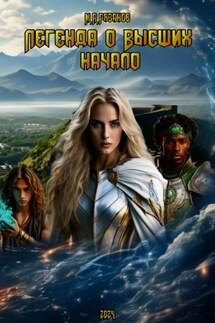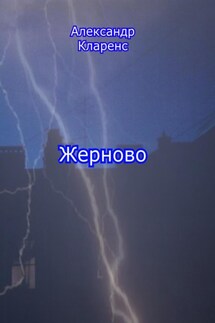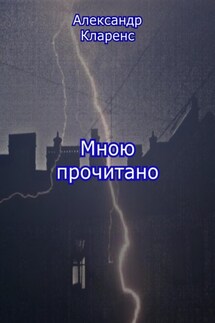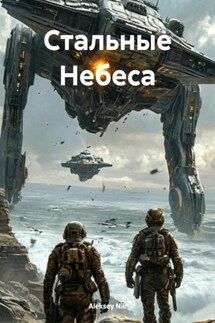Читать онлайн Джозеф Конрад - Сердце тьмы / Heart of darkness (адаптированный английский B1)
«Сeрдце тьмы» (1902) – культовая повесть английского писателя Джозефа Конрада, на основе которой снят не менее культовый фильм «Апокалипсис сегодня». Повесть рассказывает о путешествии молодого человека в неведомые земли Африки и столкновении его лицом к лицу с варварской жестокостью внутри человеческой души.
Данная адаптация для среднего уровня отличается тем, что в ней присутствуют только частоупотребимые слова английской речи (ТОП 4000), за редким исключением. Это позволяет в полной мере насладиться чтением тем, кто изучает английский язык.
Heart of Darkness by Joseph Conrad
I
The Nellie, a small ship, dropped anchor quietly. The tide was coming in, the wind was calm, so we had to wait for the tide to change before continuing down the river.
The Thames River stretched out before us, seeming endless. In the distance, the sea and sky met, blending together. In this bright space, the sails of flat boats drifting in with the tide looked like still red shapes, sharply pointed, with shining wooden parts. A light fog hung over the flat, low shores. The air was dark over Gravesend, and farther it seemed even blacker, a heavy darkness over a large city.
The company director was our captain and host. The four of us watched him as he stood at the front of the boat, looking out to sea. He looked very much like a sailor. It was hard to believe his job wasn't on the river, but in the city behind us.
We were all sailors, and this shared experience brought us together. It made us patient with each other's stories and beliefs. The lawyer, a very kind older man, had the only comfortable seat and was lying on the only rug. The accountant had a box of dominoes and was playing with them. Marlow sat cross-legged at the back of the boat. He was thin, pale, and looked like a statue. The director checked the anchor and then sat down with us. We talked a little, then there was silence. For some reason, we didn't play dominoes. We felt peaceful and just watched the surroundings.
The day ended beautifully. The water was calm and shining; the sky was clear and bright. Even the fog over the water looked beautiful, like a thin, shining cloth. Only the darkness to the west, over the upper part of the river, grew darker, as if angry at the sun.
Finally, the sun slowly set, changing from bright white to a faint red, without any light or heat, as if it was dying, touched by the darkness over the city.
The river changed. It was calmer, quieter, but more peaceful. The wide river, after serving people for centuries, flowed quietly, like a path to the far ends of the world. We saw the old river not in the bright light of a short day, but in the soft light of long-lasting memories. For someone who loves the sea, it's easy to remember the past along the Thames. The tide flows constantly, full of memories of people and ships it carried home or to battle. It served everyone the nation is proud of, from famous sailors to great explorers. It carried famous ships, from the Golden Deer, returning with treasure, to the Terror, which never returned. It knew the ships and the men who sailed from Deptford, Greenwich, and Erith – adventurers, colonists, royal ships, and merchant ships; captains, admirals, and traders. They all sailed down this river, carrying weapons and often fire, representing their country. What great things had travelled on this river into the unknown world!…The dreams of people, the beginnings of countries, the seeds of empires.
The sun set; darkness fell, and lights appeared along the shore. The Chapman lighthouse shone brightly. Ship lights moved – many lights going up and down the river. Farther west, the city seemed large, a dark shadow in the sunlight, a bright shine under the stars.
"This," said Marlow, "was also one of the dark places of the earth."
He was the only one of us who still loved the sea. He wasn't like other sailors. Most sailors have a settled life on their ship, which is also their home and their world. One ship is much like another, and the sea is always the same. They see many places and people, but they don't really notice them. Nothing is mysterious to a sailor except the sea itself, which rules their life. After work, a short walk or a night out is enough for them to understand a new place, and they usually don't find it interesting. Sailors' stories are simple. But Marlow was different. To him, the meaning of a story wasn't just the simple facts, but a larger feeling surrounding it.
His comment wasn't surprising at all. It was typical of Marlow. Everyone listened quietly. Nobody even bothered to make a sound. After a while, he said very slowly, "I was thinking about a long time ago, when the Romans first came here, nineteen hundred years ago – the other day…. This river has brought light since then – you mentioned knights? Yes, but it's like a fast-moving fire across a field. We live in this blinking light – may it last as long as the earth keeps turning! But yesterday, it was dark here. Imagine how a Roman ship captain must have felt, suddenly ordered north; rushing across France; put in charge of one of these boats and the soldiers – they must have been very skilled, building ships by the hundreds in a couple of months, if we believe what we read. Imagine him here – at the edge of the world, a grey sea, a smoke-filled sky, a weak ship – going up this river with supplies, or orders, or whatever. Swamps, forests, wild people – very little food fit for a civilized person, only river water to drink. No good wine here, no going on land. Here and there a military camp lost in the wilderness – cold, fog, storms, illness, and death – death everywhere. They must have been dying quickly. Oh yes – he did it. He probably did it well, and without much thought, except later maybe he was proud of it. They were bold enough to face the darkness. And maybe he hoped for a better job at sea later, if he had friends in Rome and survived the bad weather."
"Or think of a young man, maybe he took too many risks, coming here with a government official, a tax collector, or even a trader, to improve his life. Landing in a swamp, going through the woods, and in some remote place feeling completely surrounded by wilderness, the mysterious life of the jungle, the hearts of wild people. There's no easy way into this mystery. He has to live with the strange and hard. And it's also strangely exciting, it affects him. The excitement of the terrible – you know, imagine the growing regrets, the wish to escape, the giving up, the hate."
He paused.
"Look," he said again, raising one arm, his palm open, so that, with his legs crossed, he looked like a Buddha in normal clothes without a flower – "Look, none of us would feel exactly the same. What saves us is being efficient – focusing on efficiency. But these Romans weren't very good, really. Their rule was just about taking what they could, I think. They were invaders, and for that you only need force – nothing to be proud of, as your strength is just because others are weak. They took what they wanted. It was simply stealing and violence, mass murder, and people acting blindly – which is common for those who fight the darkness. Taking over land, which usually means taking it from people with a different skin color or slightly flatter noses than ours, isn't good when you think about it too much. What makes it acceptable is the idea behind it. An idea; not a false excuse, but an idea; and a clear belief in that idea – something you can respect, and serve, and make sacrifices for…"
He stopped talking. Flames danced on the river – small green flames, red flames, white flames – chasing, catching up with, and crossing each other, then slowly or quickly separating. City traffic continued through the night on the busy river. We watched, waiting patiently – there was nothing else to do until the flood ended. Only after a long silence, when he said, "I guess you all remember I was a riverboat sailor for a while," did we realize we were going to hear about one of Marlow's unfinished adventures.
"I don't want to bore you with my personal story," he began, showing a common mistake of story tellers who don't know what their audience wants to hear. "But to understand how it affected me, you need to know how I got there, what I saw, and how I went up that river to where I first met the poor man. It was the distant point you could reach by boat, and the most important part of my experience. It somehow seemed to shed light on everything around me – and on my thoughts. It was quite dark and sad, not unusual in any way – not very clear either. No, not very clear. And yet it seemed to shed light.
"As you know, I'd just returned to London after many years in the Indian Ocean, Pacific, and China Seas – a long time in the East – about six years. I was just relaxing, bothering you all at work and visiting your homes, like I had a mission to improve your lives. It was nice for a while, but I got tired of doing nothing. So I started looking for a ship – probably the hardest job in the world. But no ships wanted me. I got tired of that too.
"When I was a child, I loved maps. I'd spend hours looking at South America, Africa, or Australia, dreaming about exploration. Back then, there were many unknown areas on the maps, and when I saw one that looked interesting (but they all do!), I'd point and say, 'When I grow up, I'll go there.' The North Pole was one, I remember. Well, I haven't been there yet, and I won't now. The excitement's gone. There were other places too. I've been to some of them, and… well, let's not talk about that. But there was one left – the largest, the most unknown – that I wanted to visit.
"Of course, by then it wasn't unknown anymore. It was filled with rivers, lakes, and names. It wasn't a mysterious, empty place for a boy to dream about anymore. It had become a dark place. But there was one river, a huge river, that you could see on the map. It looked like a giant snake turning its head in the sea, its body curving across a huge country, and its tail disappearing into the depths of the land. When I saw it in a shop window, it attracted me like a snake attracts a bird – a silly little bird. Then I remembered a large company, a trading company working on that river. 'Well!' I thought, 'they can't trade without boats on all that water! Why shouldn't I try to get a job on one?' I walked down Fleet Street, but I couldn't forget it. The snake had attracted me."
You know that trading company was based in Europe; I have many relatives living there because it's affordable and not as bad as people say.
I’m sorry to say I started to bother them to get the job. This was unusual for me. I wasn’t used to doing things that way. I always did things my own way. I wouldn't have believed I'd do it, but I felt I had to get the job, no matter what. So I bothered them. The men said, "My dear friend," and did nothing. Then – believe it or not – I tried the women. I, Charlie Marlow, asked women for help to get a job. Amazing! The idea was very important to me. I had an aunt, a kind woman. She wrote, "It will be wonderful. I'll do anything for you. It's a great idea. I know the wife of a very important person in the government, and also a man who is very influential," etc. She was determined to help me become a steamboat captain, if that’s what I wanted.






